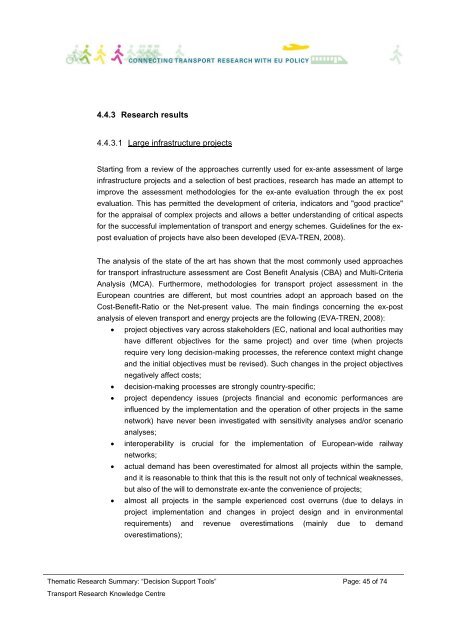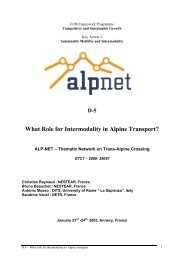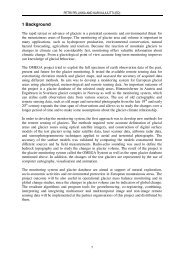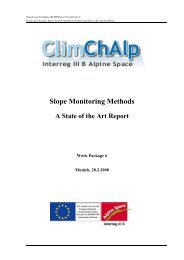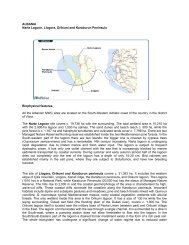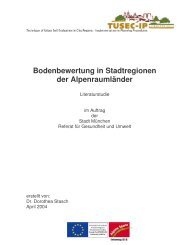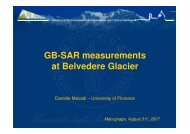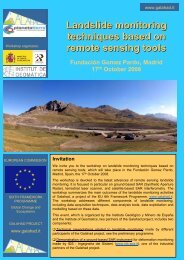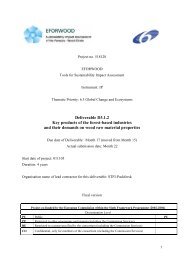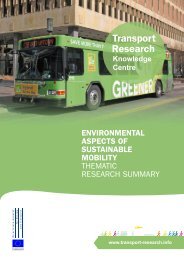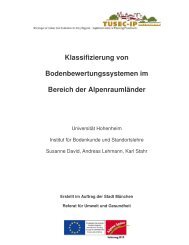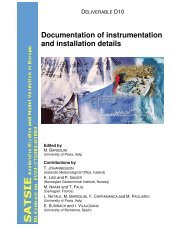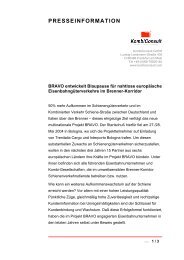Decision Support Tools - Thematic Research Summary - Transport ...
Decision Support Tools - Thematic Research Summary - Transport ...
Decision Support Tools - Thematic Research Summary - Transport ...
Create successful ePaper yourself
Turn your PDF publications into a flip-book with our unique Google optimized e-Paper software.
4.4.3 <strong>Research</strong> results4.4.3.1 Large infrastructure projectsStarting from a review of the approaches currently used for ex-ante assessment of largeinfrastructure projects and a selection of best practices, research has made an attempt toimprove the assessment methodologies for the ex-ante evaluation through the ex postevaluation. This has permitted the development of criteria, indicators and "good practice"for the appraisal of complex projects and allows a better understanding of critical aspectsfor the successful implementation of transport and energy schemes. Guidelines for the expostevaluation of projects have also been developed (EVA-TREN, 2008).The analysis of the state of the art has shown that the most commonly used approachesfor transport infrastructure assessment are Cost Benefit Analysis (CBA) and Multi-CriteriaAnalysis (MCA). Furthermore, methodologies for transport project assessment in theEuropean countries are different, but most countries adopt an approach based on theCost-Benefit-Ratio or the Net-present value. The main findings concerning the ex-postanalysis of eleven transport and energy projects are the following (EVA-TREN, 2008):• project objectives vary across stakeholders (EC, national and local authorities mayhave different objectives for the same project) and over time (when projectsrequire very long decision-making processes, the reference context might changeand the initial objectives must be revised). Such changes in the project objectivesnegatively affect costs;• decision-making processes are strongly country-specific;• project dependency issues (projects financial and economic performances areinfluenced by the implementation and the operation of other projects in the samenetwork) have never been investigated with sensitivity analyses and/or scenarioanalyses;• interoperability is crucial for the implementation of European-wide railwaynetworks;• actual demand has been overestimated for almost all projects within the sample,and it is reasonable to think that this is the result not only of technical weaknesses,but also of the will to demonstrate ex-ante the convenience of projects;• almost all projects in the sample experienced cost overruns (due to delays inproject implementation and changes in project design and in environmentalrequirements) and revenue overestimations (mainly due to demandoverestimations);<strong>Thematic</strong> <strong>Research</strong> <strong>Summary</strong>: “<strong>Decision</strong> <strong>Support</strong> <strong>Tools</strong>” Page: 45 of 74<strong>Transport</strong> <strong>Research</strong> Knowledge Centre


